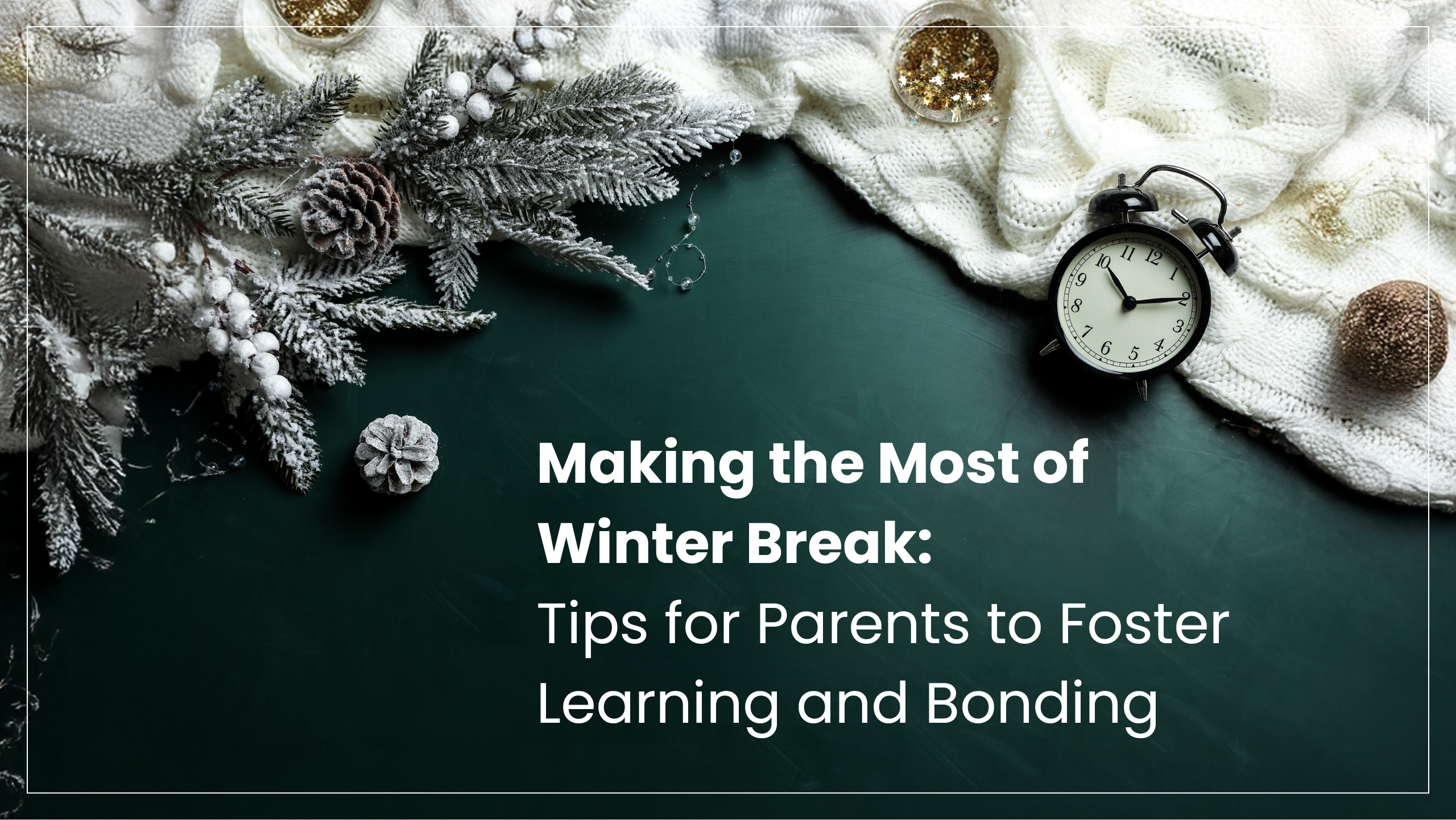Winter break offers a wonderful opportunity for parents to strengthen their bond with children while keeping the learning process alive. While the holidays are a time for joy and relaxation, incorporating educational activities can help children grow academically, socially, and emotionally. By blending fun with learning, parents can ensure their children enjoy the holidays and enter the new year refreshed, motivated, and confident.
- Encourage Creative Learning Activities—Winter break is the perfect time to explore creative learning activities. Parents can engage their children in arts and crafts projects, holiday-themed science experiments, or Do It Yourself (DIY) activities like making homemade decorations. These hands-on experiences promote problem-solving skills, creativity, and fine motor development. Encouraging children to create holiday stories or drawings nurtures their imagination and keeps their minds active.
- Incorporate Educational Games and Puzzles – Keeping the learning process enjoyable is crucial. Parents can introduce educational games, puzzles, and board games that enhance critical thinking, logic, and math skills. Word games, trivia challenges, and number-based puzzles can sharpen children’s cognitive abilities while fostering a fun family environment. These activities ensure that children remain mentally stimulated without the pressure of formal study.
- Reading for Fun and Growth – Winter break is an excellent time to encourage children to develop a love for reading. Parents can select age-appropriate books and set aside daily reading time. Choosing winter-themed stories, inspirational books or educational material helps children expand their vocabulary and comprehension skills. Reading together not only enhances literacy but also promotes family bonding and shared experiences.
- Teach Empathy Through Volunteering – The holiday season is a wonderful opportunity to teach children about kindness and empathy through volunteering. Involving children in community service activities like food drives, charity events, or helping at shelters helps them understand the importance of giving back. These experiences teach social responsibility and help shape them into compassionate individuals who care for others.
- Plan Outdoor and Physical Activities – Staying active during winter break is essential for children’s physical health and mental well-being. Parents can organize fun outdoor activities like ice skating, hiking, or playing sports in the park. These activities promote teamwork, resilience, and discipline while offering a break from screen time. Engaging in physical activities also helps children manage stress and boosts their overall mood.
- Set Goals for the New Year – Winter break is a great time for parents to sit down with their children and reflect on the past year’s achievements. Together, they can set new academic and personal goals for the coming year. Discussing aspirations and creating a goal-oriented plan helps children stay motivated and organised. This practice instils a sense of purpose and commitment, preparing them to start the new year with confidence.
The winter break provides a perfect opportunity to blend learning, creativity, and bonding. By engaging children in educational, physical, and community-based activities, parents can nurture their emotional, social, and academic growth. Encouraging exploration, creativity, and reflection during the holidays helps children develop essential life skills and start the new year feeling confident and inspired. These experiences shape well-rounded individuals ready to take on future challenges with enthusiasm and resilience.
